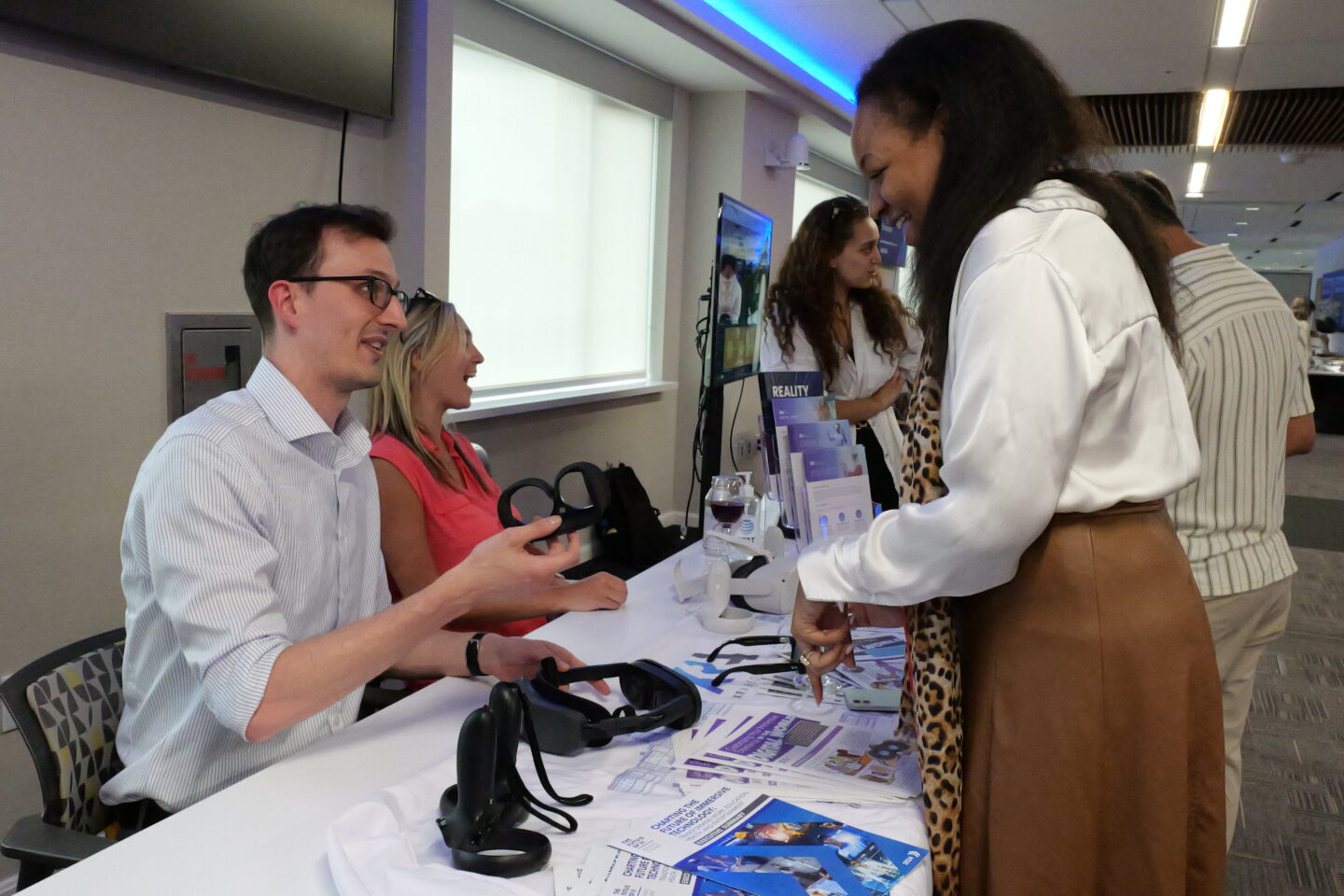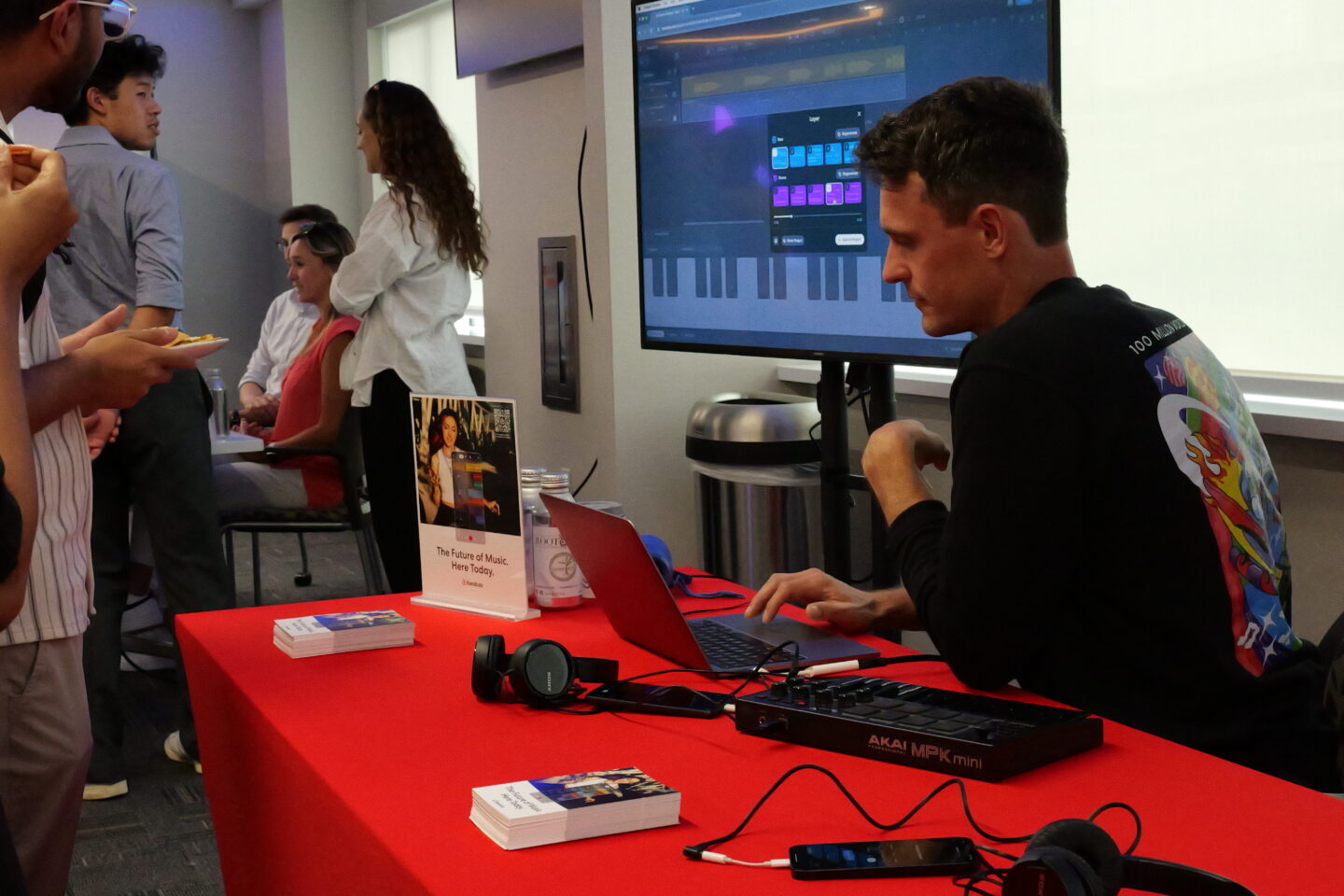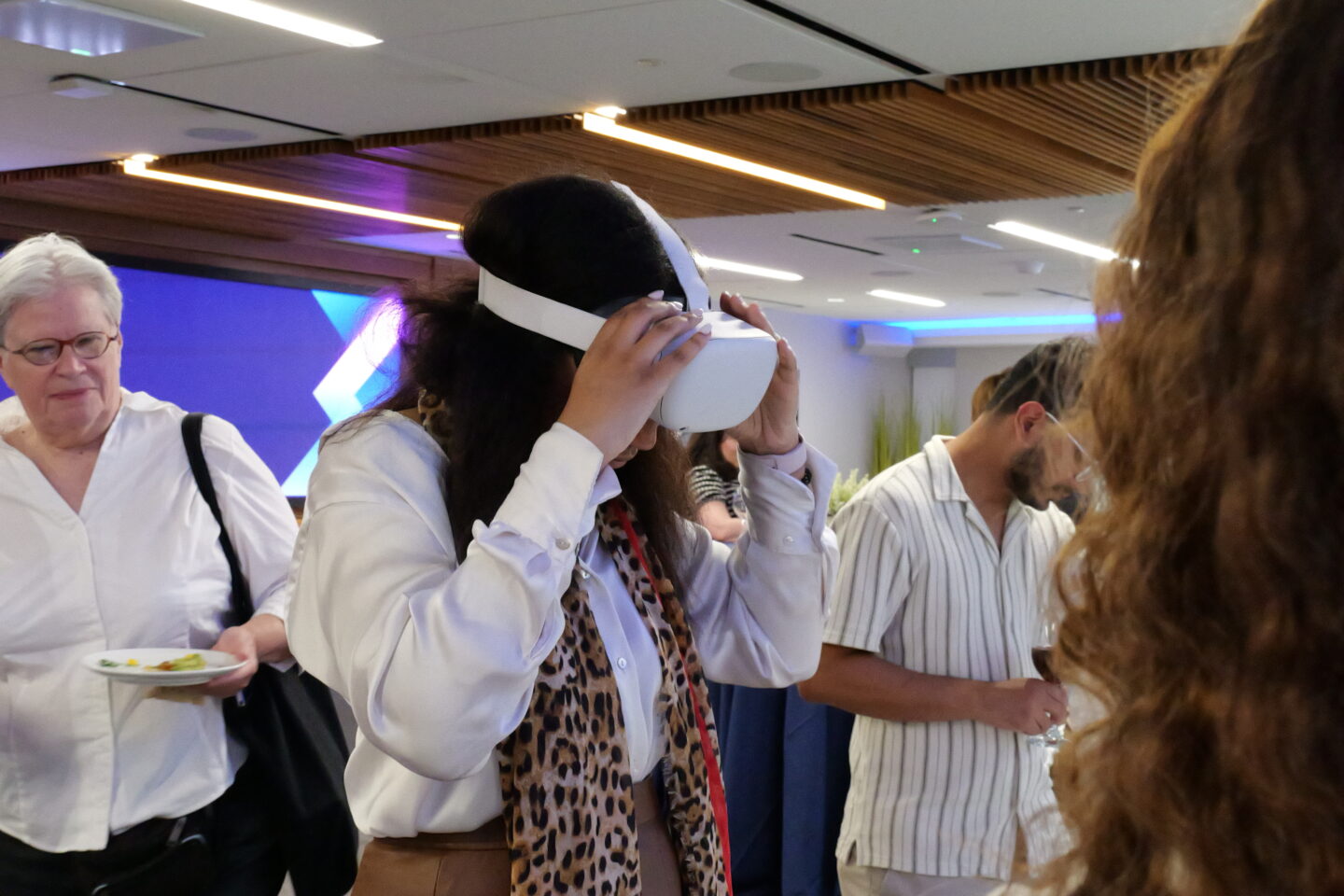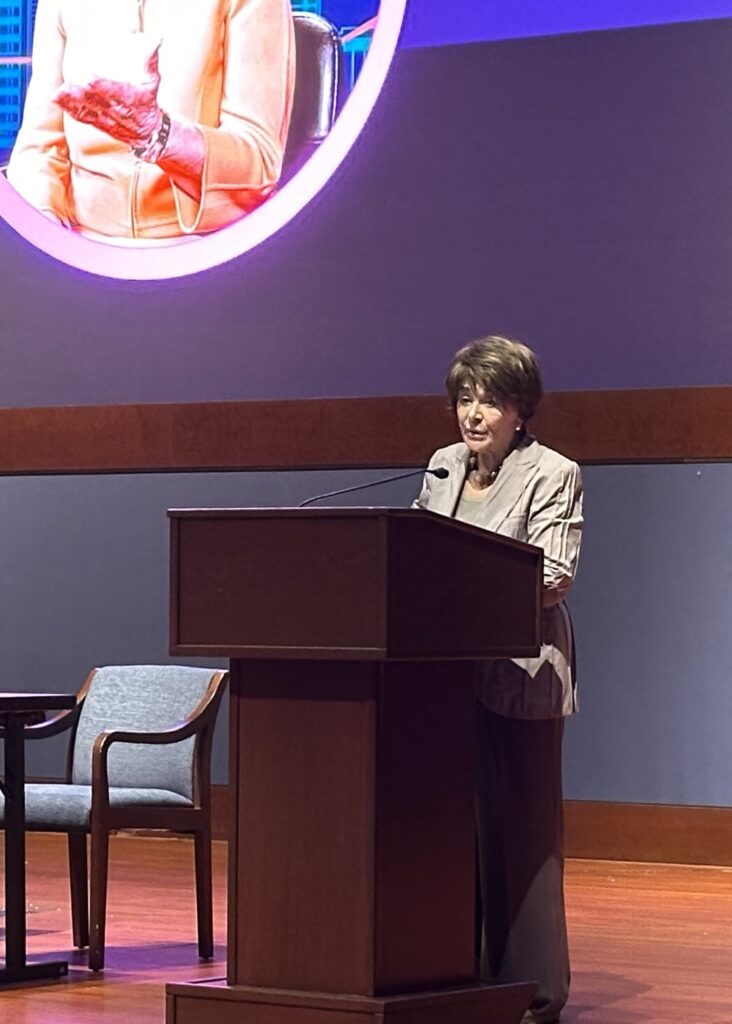Public Knowledge hosts Emerging Tech to bring together public interest advocates, policymakers, and companies on the cutting edge of technology. The event helps inform policymakers about the promise, potential pitfalls, and policy implications of fast-moving tech dominating headlines and impacting our society in new ways.
We invite industry experts from across the country to join us for an all-day discussion as well as a reception and tech showcase, where guests can experience the latest technologies first-hand and get to know the people driving the next iteration of the internet.
In 2024, the event focused on generative AI, XR technologies, and the decentralized web. Congresswoman Anna Eshoo (D-CA) keynoted the event. Congresswoman Eshoo reflected on the major advances in technology she has seen since she first entered Congress in 1993, and the new challenges this rapid progress presents to consumer protection and national security, especially with the emergence of large language models and generative artificial intelligence (GAI). She highlighted the “Creating Resources for Every American To Experiment with Artificial Intelligence Act of 2023” (CREATE AI Act), which she co-authored to create the National Artificial Intelligence Research Resource or NAIRR, a shared national research infrastructure to provide AI researchers and students with greater access to the complex resources, data, and tools needed to develop safe and trustworthy artificial intelligence. You can watch the keynote here.
Speakers from Foundation for American Innovation, Holo Hosting, and Filecoin Foundation for the Decentralized Web joined Public Knowledge moderator and Policy Counsel Nick Garcia in a conversation on The Decentralized Web: Solutions for the Challenges of Centralized Technology. The panelists discussed the history and trajectory of decentralized web technologies and addressed issues related to user experience and the preservation of digital knowledge, highlighting the importance of user agency, trust, and competition in the digital age. You can watch the panel here.
Speakers from EQTYLab, Creative Commons’s Open Climate Campaign, BandLab, and Metagov delivered a series of short talks about different approaches to the design and development of AI for Public Good. The speakers discussed AI systems integrated with cryptographic authentication and verification to improve trustworthiness and reliability, generative AI systems that support musicians both through the creation of new tools as well as voluntarily-adopted practices for sourcing training data, and the growing movement for Public AI. You can watch the presentations and a discussion between the speakers here.
Speakers from National Institute of Standards and Technology, Color of Change, and XR Association joined Tech Policy Press moderator and CEO Justin Hendrix in a conversation on Intersections with XR Technologies. Panelists discussed how exciting developments in extended reality (XR) technologies (which includes augmented reality [AR], virtual reality [VR], and mixed reality) overlap with some of the most critical tech policy issues in D.C. today: privacy, AI, and inclusive design. They highlighted the rise of XR convergence and the industrial metaverse, as well as challenges to creating policy and ensuring accessibility for all consumers. You can watch the panel here.
Professor Jeff Jarvis of Newmark Graduate School of Journalism and CEO and Editor Justin Hendrix of Tech Policy Press each presented a talk sharing a Perspective on Media and Emerging Technology. Professor Jeff Jarvis discussed the “Journalism Competition and Preservation Act,” mis- and disinformation, and the perils and opportunities of AI for media companies. Justin Hendrix discussed the traits that distinguish XR from other digital communications technologies and its implications for the human species. You can watch Professor Jeff Jarvis’s talk here and watch Justin Hendrix’s talk here.
Emerging Tech 2024 also hosted the launch of an Open Future Foundation report on an Alignment Assembly on AI and the Commons. Report author Shannon Hong presented on the innovative Alignment Assembly methodology used to survey participants in the Open Culture movement about their attitudes towards AI before moderating a conversation between co-author Alek Tarkowski and EleutherAI Head of Policy and Ethics, Aviya Skowron. The conversation showcased the report’s primary finding – two relatively distinct attitudes developing towards AI represented by the conversation’s participants. You can watch the report presentation and conversation here.
Multiple companies and organizations joined the event to showcase some of the latest technology discussed in the panels. This showcase gives guests the opportunity to experience these emerging technologies directly so they can begin grasping both the practical and policy potential of these devices and how they might impact our society. You can glimpse the tech showcase for 2024 and even 2023 to learn more about this unique display.
In 2024, we were joined by:
BandLab, a platform and tool suite enabling musicians to reach wider audiences, featured a Digital Audio Workstation.
Cyber Collective, a group of cyber security and data privacy experts, technologists, activists, and storytellers advocating for a better internet, featured tips, resources, and literature for people to keep themselves safe online, including a password manager notebook.
EQTYLab, which develops easy-to-use tools to make your AI models transparent and collaborative, featured ClimateGPT, their flagship AI system discussed during the AI for Public Good presentation.
Filecoin Foundation for the Decentralized Web, a nonprofit stewarding the development of open-source software and open protocols for decentralized data storage and retrieval networks, featured Starling Lab’s framework for data integrity.
Meta, which featured some of their latest and greatest XR technology including Meta Quest VR headsets and the RayBan Meta Smart Glasses.
XR Association (XRA), which exhibited virtual reality (VR) hardware that enabled attendees to jump into immersive experiences, including the frenetic rhythm game Beat Saber and even Meta’s flagship VR social application Horizon Worlds.
Reach out to Michele Ambadiang, our Events Manager, to sponsor this event, join the panel discussions, or participate in the tech showcase in 2025 to share your own world-changing technology. View our YouTube channel to experience more of this momentous event.








